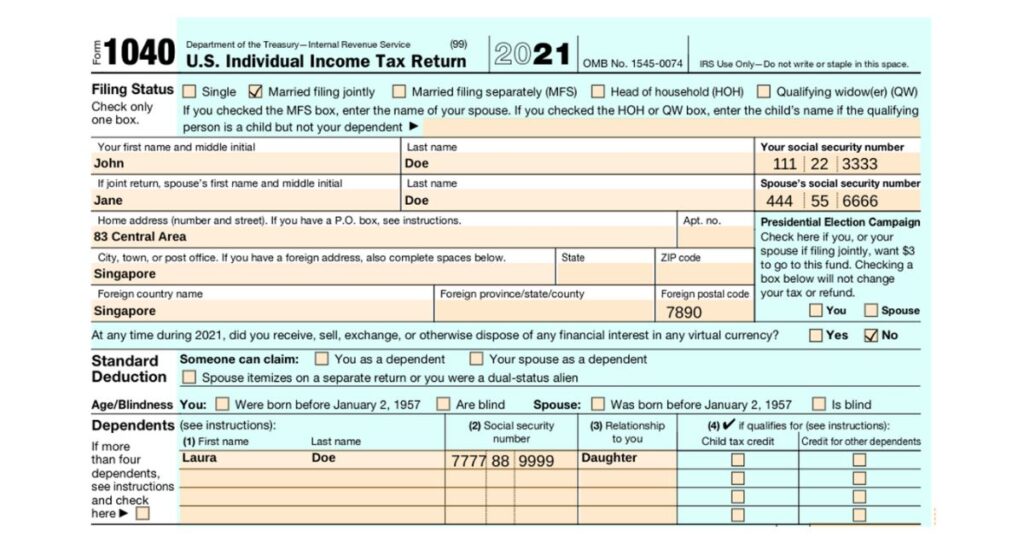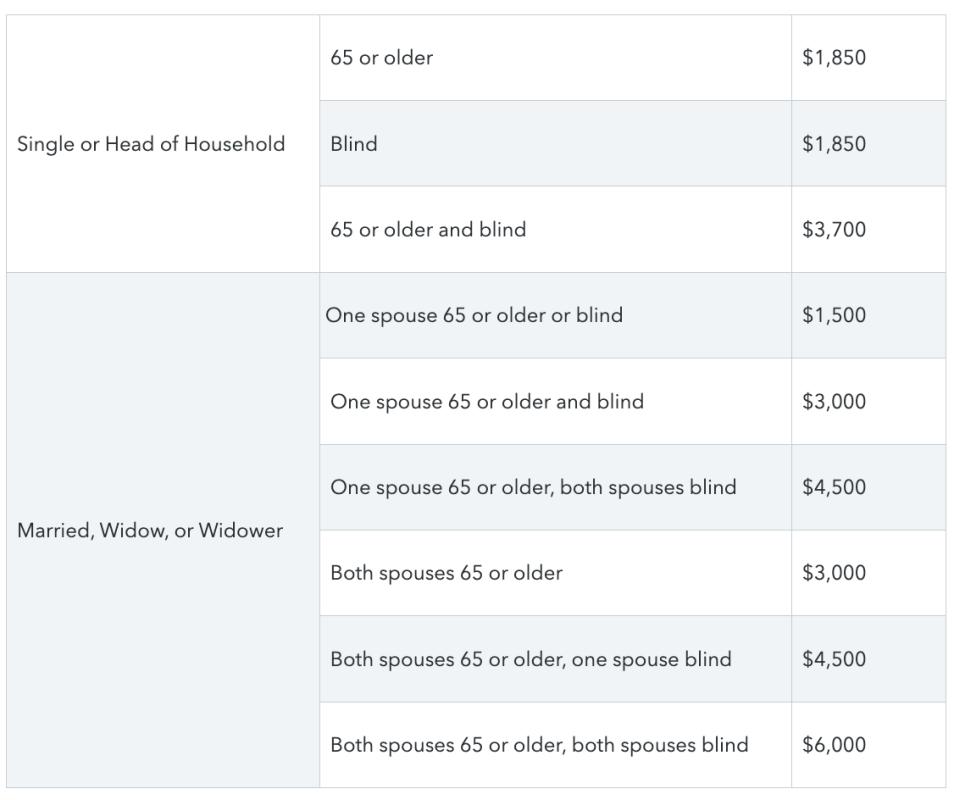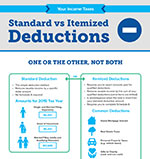Recognizing the Foreign Earned Earnings Exemption and Its Effect On Your Standard Reduction
The Foreign Earned Income Exclusion (FEIE) offers substantial benefits for migrants, enabling them to leave out a part of their foreign-earned income from united state tax. Declaring the FEIE can complicate one's tax obligation circumstance, especially pertaining to the typical reduction. Comprehending this communication is vital for individuals living abroad. As expatriates browse these complexities, they should take into consideration how their options affect their total tax responsibility. What methods can they utilize to maximize their economic end results?
What Is the Foreign Earned Income Exemption (FEIE)?
The Foreign Earned Revenue Exclusion (FEIE) acts as a vital tax obligation benefit for U.S. citizens and resident aliens working abroad. This provision allows eligible individuals to leave out a considerable portion of their foreign-earned income from U.S. tax, effectively minimizing their overall tax problem. The FEIE aims to ease the financial stress on migrants and urges Americans to seek employment possibilities in international markets. The exclusion applies to wages, salaries, and professional fees made while living in an international nation. The maximum exemption quantity is adjusted yearly for rising cost of living, guaranteeing that it remains relevant to present financial problems. By using the FEIE, expatriates can preserve more of their revenue, fostering monetary security while living overseas. In general, the FEIE plays an essential duty fit the economic landscape for Americans abroad, assisting in a smoother shift to global workplace and promoting financial involvement on a worldwide range.
Eligibility Requirements for the FEIE
Qualification for the Foreign Earned Revenue Exemption (FEIE) is contingent upon conference details criteria set by the Irs (IRS) Largely, people need to be united state residents or resident aliens that earn income while living in a foreign nation. To certify, they must please a couple of primary examinations: the Physical Visibility Examination or the Bona Fide Residence Test.
The Physical Existence Examination calls for individuals to be literally present in an international nation for at least 330 complete days within a 12-month period - FEIE Standard Deduction. On the other hand, the Bona Fide House Examination demands that people establish residency in an international country for an uninterrupted period that includes an entire tax obligation year
Additionally, the income should be obtained from individual solutions executed in the foreign country. Fulfilling these demands enables taxpayers to exclude a considerable part of their foreign-earned earnings from U.S. taxation, thus minimizing their overall tax obligation liability.
Just how to Assert the FEIE

To begin the process, individuals ought to collect records that confirm their foreign profits, such as pay stubs, income tax return from international countries, and any type of appropriate employment agreement. It is essential to ensure all revenue asserted under the FEIE is made from foreign sources and fulfills the called for thresholds.
In addition, taxpayers need to think about filing due dates and any feasible extensions. Asserting the FEIE correctly not just assists in minimizing tax responsibility yet also ensures compliance with IRS guidelines. Appropriate documentation and adherence to guidelines are important for a successful claim of the Foreign Earned Earnings Exclusion.
The Interaction In Between FEIE and Common Reduction
The interaction in between the Foreign Earned Revenue Exclusion (FEIE) and the common reduction is a vital facet of tax preparation for migrants. Understanding the standard principles of FEIE, in addition to the limitations of the basic reduction, can significantly influence tax obligation declaring techniques. This area will certainly check out these components and their ramifications for taxpayers living abroad.
FEIE Essentials Discussed
While lots of migrants look for to lower their tax burden, comprehending the communication between the Foreign Earned Revenue Exemption (FEIE) and the basic reduction is crucial. The FEIE allows united state citizens and resident aliens living abroad to leave out a certain amount of international made revenue from united state taxation. This exemption can greatly lower taxed income, possibly affecting eligibility for various other deductions, such as the basic deduction. Remarkably, individuals that declare the FEIE can not also take the basic reduction versus the left out revenue. Consequently, expatriates must carefully examine their complete income and deductions to maximize their tax situation. Recognition of these interactions can lead to more informed financial decisions and far better tax obligation approaches for migrants steering with their distinct situations.
Standard Reduction Limitations
Understanding the limitations of the common deduction in relation to the Foreign Earned Income Exclusion (FEIE) is crucial for expatriates maneuvering their tax obligation duties. While the FEIE enables qualifying individuals to leave out a certain quantity of foreign-earned revenue from U.S. taxes, it can impact the standard reduction they are qualified to insurance claim. Specifically, taxpayers who declare the FEIE can not also claim the conventional reduction on that particular omitted income. In addition, if a migrant's overall revenue drops below the conventional deduction limit, they might not gain from it at all. This interaction demands mindful planning to optimize tax obligation advantages, as underutilizing the standard deduction can cause greater taxed income and increased tax obligation responsibility. Recognizing these constraints is vital for reliable tax obligation method.
Tax Declaring Ramifications
Steering the tax obligation filing ramifications of the Foreign Earned Income Exclusion (FEIE) needs mindful factor to consider of how it engages with the common reduction. Taxpayers using the FEIE can leave out a substantial section of their foreign-earned earnings, but this exemption affects their qualification for the common reduction. Specifically, if a specific cases the FEIE, they can not additionally assert the basic deduction for that income. This can result in a reduced general discover here tax responsibility however might complicate the declaring procedure. In addition, taxpayers need to guarantee compliance with internal revenue service requirements when submitting Form 2555 for the FEIE. Comprehending these communications is important for enhancing tax obligation advantages while avoiding potential pitfalls in the declaring procedure. Cautious preparation can make the most of advantages and minimize obligations.
Potential Tax Obligation Implications of Making Use Of the FEIE
The Foreign Earned Income Exclusion (FEIE) offers significant tax advantages for united state residents working abroad, however it additionally features prospective implications that call for cautious consideration. One significant repercussion is the influence on qualification for certain tax credit scores and reductions. By choosing to make use of the FEIE, taxpayers might unintentionally minimize their adjusted gross earnings, which can restrict access to credit reports like the Earned Earnings Tax obligation Credit rating or decrease the amount of common deduction available.
Additionally, people who use the FEIE may deal with problems when returning to the united state tax system, especially this link concerning the taxes of future revenue. The exclusion applies just to earned earnings, indicating various other revenue kinds, such as dividends or interest, stay taxable. This difference requires meticulous record-keeping to ensure conformity. Ultimately, the FEIE may influence state tax obligations, as some states do not acknowledge the exemption and might strain all revenue made by their locals, no matter where it is gained.
Tips for Maximizing Your Tax Obligation Benefits While Abroad
While functioning abroad can be enriching, it additionally provides special chances to enhance tax obligation benefits. To optimize these advantages, people should first determine their eligibility for the Foreign Earned Income Exemption (FEIE) and consider the physical existence examination or the bona fide house examination. Maintaining in-depth documents of all income earned and expenses sustained while overseas is crucial. This documents sustains insurance claims for reductions and credits.
Furthermore, understanding the tax obligation treaties between the USA and the host country can assist avoid double taxation. People ought to also explore payments to tax-advantaged accounts, such as Individual retirement accounts, which might provide further deductions.

Last but not least, getting in touch with a tax obligation professional concentrating on expatriate tax regulation can supply tailored techniques and assurance conformity with both U.S. and foreign tax obligation obligations. By taking read these steps, expatriates can successfully boost their economic circumstance while living abroad.
Often Asked Inquiries
Can I Utilize FEIE if I Benefit an International Federal government?
Yes, a person can make use of the Foreign Earned Revenue Exclusion (FEIE) while benefiting a foreign federal government, provided they satisfy the requisite problems laid out by the internal revenue service, consisting of the physical presence or authentic residence tests.

Does FEIE Use to Self-Employment Revenue?
The Foreign Earned Revenue Exclusion (FEIE) does put on self-employment income, provided the specific satisfies the necessary requirements. Eligible self-employed people can leave out qualifying income gained while living in a foreign country from taxation.
What happens if My International Revenue Exceeds the FEIE Limitation?
If international revenue surpasses the FEIE limit, the excess amount might go through U.S. tax. Taxpayers need to report and pay tax obligations on the revenue over the exemption limit while still taking advantage of the exemption.
Can I Declare the FEIE and Make A List Of Deductions?
Yes, people can claim the Foreign Earned Income Exemption (FEIE) while additionally itemizing reductions. They must be mindful that asserting the FEIE might impact the availability of certain itemized deductions on their tax return.

Just How Does FEIE Impact My State Tax Obligation Responsibilities?
The Foreign Earned Earnings Exemption can lower state tax obligation responsibilities, as many states comply with federal standards. Private state regulations differ, so it's necessary to get in touch with state tax obligation regulations for details implications on tax obligation obligations.
The Foreign Earned Revenue Exemption (FEIE) supplies considerable advantages for migrants, permitting them to leave out a section of their foreign-earned earnings from U.S. tax. While many expatriates look for to lower their tax obligation burden, comprehending the interaction in between the Foreign Earned Earnings Exclusion (FEIE) and the basic reduction is necessary. Comprehending the restrictions of the conventional reduction in connection to the Foreign Earned Revenue Exemption (FEIE) is vital for expatriates maneuvering their tax duties. The exclusion uses just to made earnings, meaning various other income types, such as dividends or interest, remain taxed. The Foreign Earned Income Exemption (FEIE) does use to self-employment earnings, gave the private meets the essential needs.